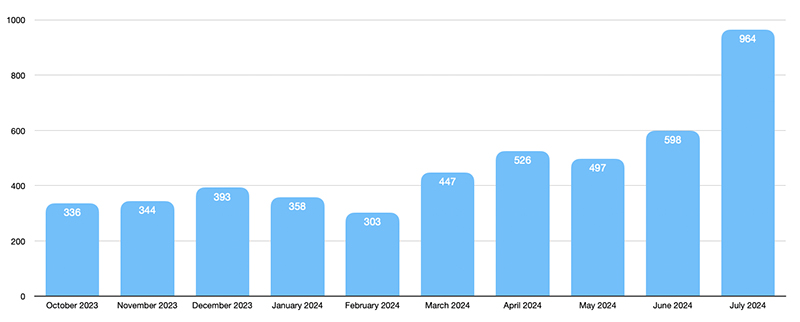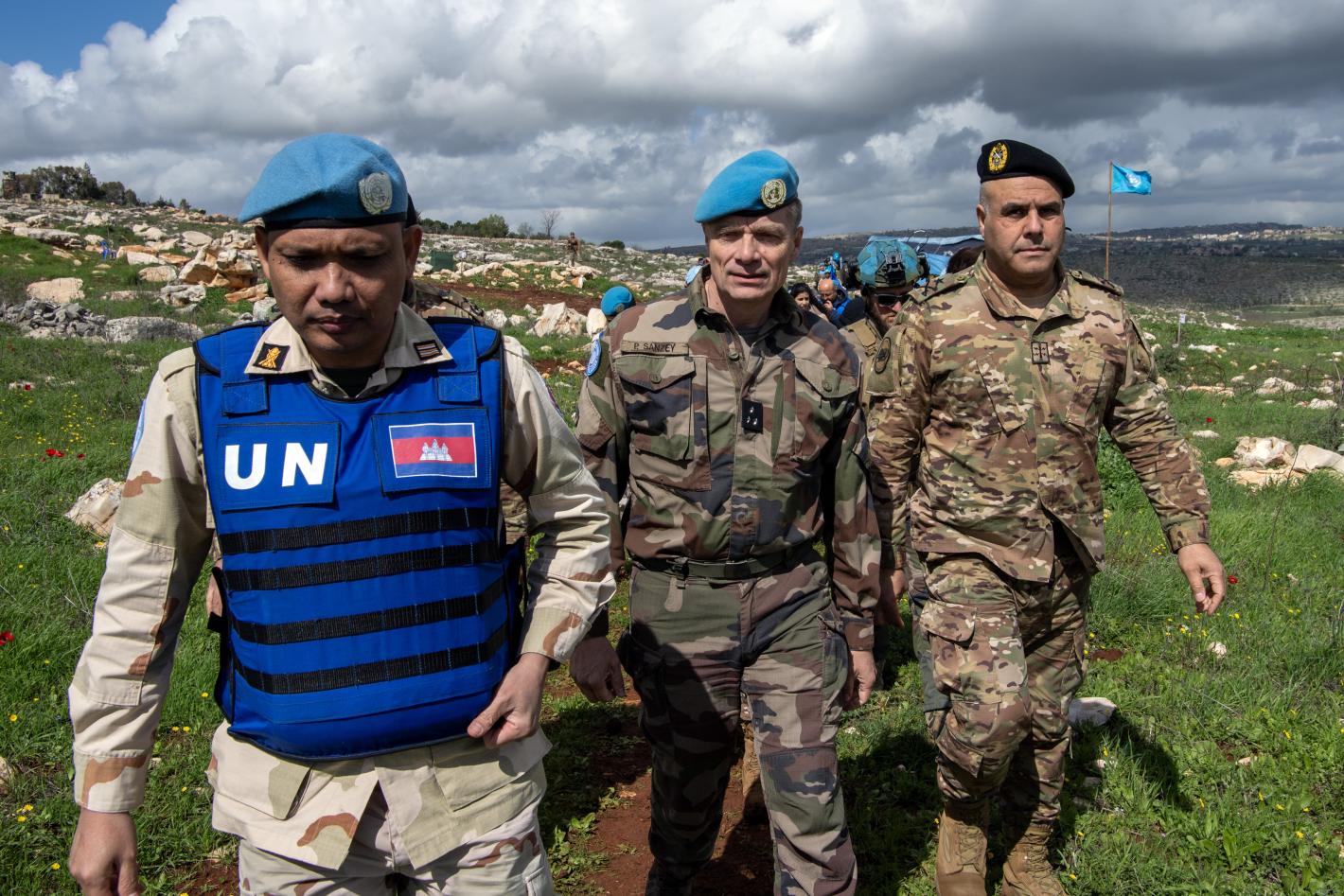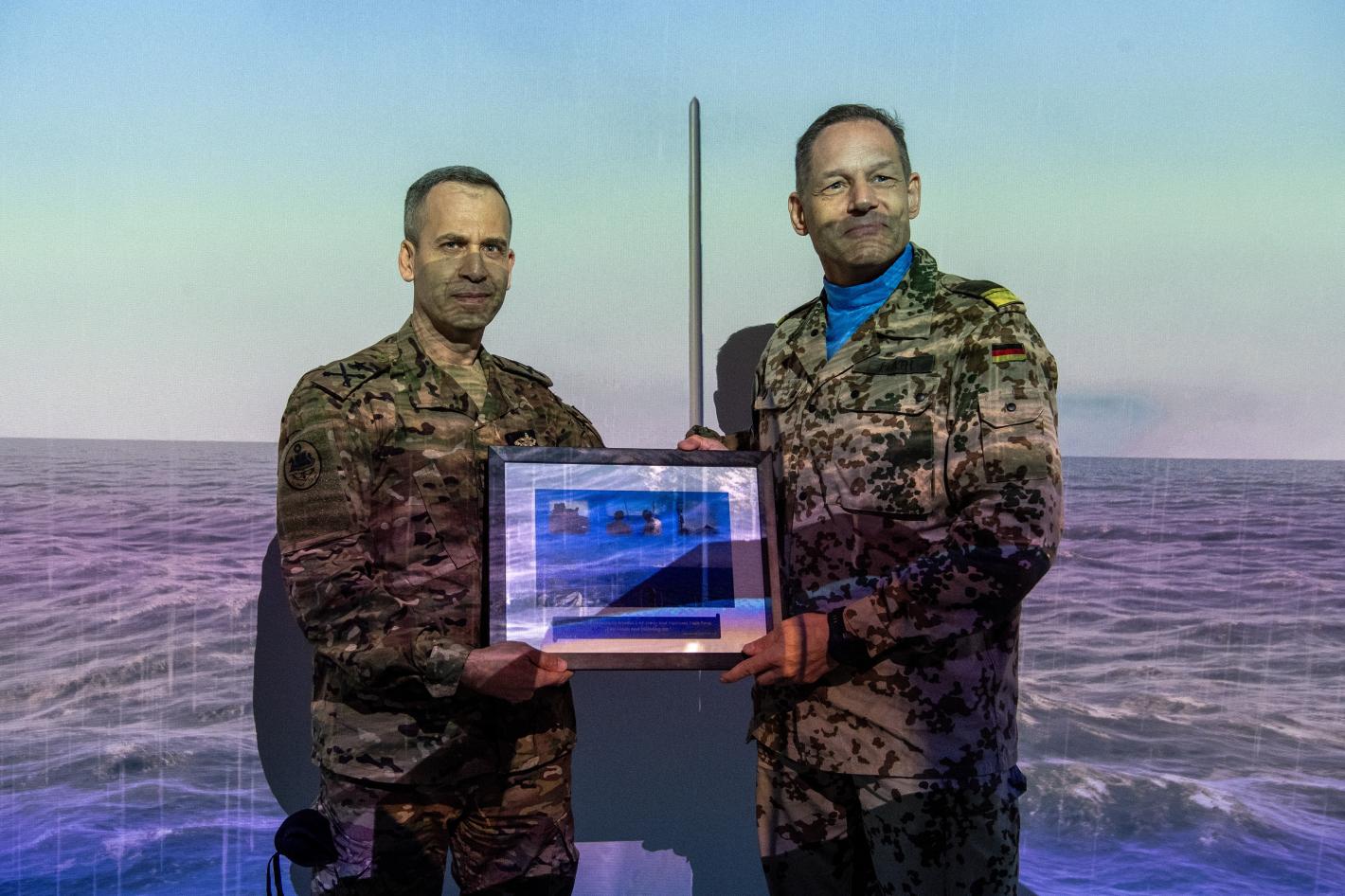Since the exchanges of fire across the Blue Line started 10 months ago, almost 100,000 people living close to the 120-kilometre Line have fled to safer areas northward. Those staying behind for various reasons have been left with limited protection network, including medical care.
UNIFIL’s 15 hospitals spread across south Lebanon have kept their doors open to those needy Lebanese requiring medical and dental support. UNIFIL records show 4,766 Lebanese patients visited UNIFIL hospitals since October last year.

In addition, some of the UNIFIL contingents – such as those from India, Italy, China, Ghana, Malaysia, Republic of Korea and Nepal – have conducted free medical and dental camps out in the communities. Indian and Korean doctors have also held several virtual camps for those in faraway and hard-to-reach areas, in addition to organizing veterinary camps.
As the violence across the Blue Line intensifies and increasing number of residents flee to safety, with little or no medical support available, UNIFIL’s Force Medical Officer, Lt. Col. Dr. Anuj Vashisht, says the mission’s troop-contributing countries have been generous about treating Lebanese patients and giving away medicines.
“For UNIFIL hospitals, whosoever comes here we treat them,” says Dr. Vashisht. “We treat them out of whatever medicine we have, whatever help we could give them.”
In addition to offering free treatment and medicines, Dr. Vashisht says, some of the UNIFIL contingents have also been providing training courses including on basic first aid and mother-and-child health, among others.
According to Dr. Vashisht and the Nepalese contingent’s Dr. Rakshya Guragain, the main complaints and illness of those seeking medical assistance are arthritis, backache, respiratory problems, blood pressure and diabetes. Elderly people account for the majority of the beneficiaries.
UNIFIL Indian contingent regularly offers medical support both in its base and out in the communities. Recently a free medical camp was organized in collaboration with the Social Affairs Center of Shab’a, south-eastern Lebanon.
Lt. Col. Dr. Amoolya Teja of the Indian Battalion says, since October last year, locals are not able to go to specialized treatment set-ups.
“We were given the chance to come here, so that we can come and establish a camp here and do the treatment possible for the locals,” says Dr. Teja.
The Director of Social Affairs Center in Shab’a, Mohamad Saadeh, affirms that the collaboration between the Center and UNIFIL Indian peacekeepers is not something new, but “is now needed more than ever” due to the hard times that the area has been going through.
“The Indian battalion provided us with medical and humanitarian services, as well as free medicines,” he says. “The free medicines that we receive from UNIFIL, especially from the Indian battalion, our Center distributes to our community members to help and support them. This day, with UNIFIL being here, is very special to us.”
Listen to UNIFIL radio program "Salam from the south - UNIFIL medical support to local community






